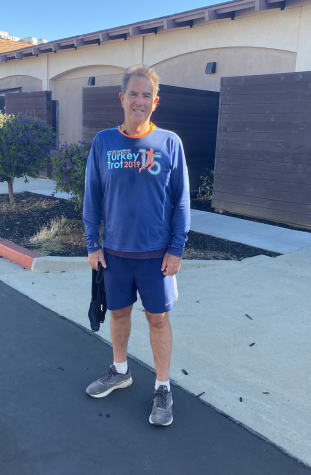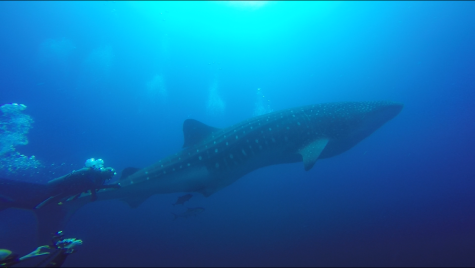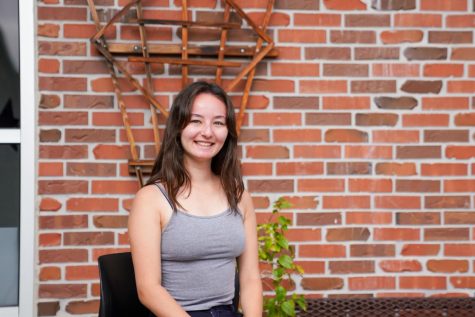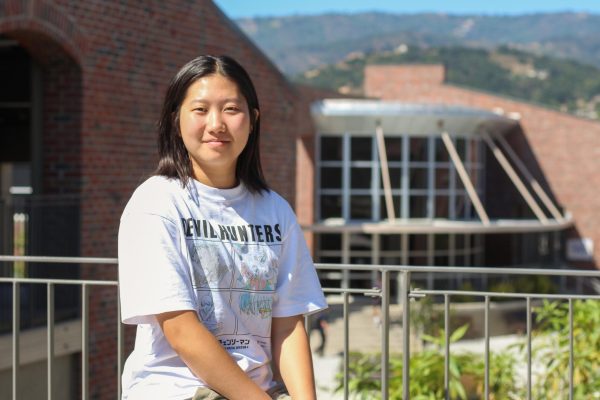Not slowing down
Community members discuss how the way they play sports has changed throughout the years
November 8, 2022
58-year-old Dimitris Gerodimos has only played one sport his entire life — soccer. Gerodimos started playing when he was around four and hasn’t stopped playing since. Currently, he plays at two locations, in Los Gatos, where he lives, and at the upper field of MVHS, for about an hour around three times a week. While playing soccer has caused ankle and knee injuries, Gerodimos believes it has brought him more benefit than harm.

“You’re more mobile if you play sports,” Gerodimos said. “The older you get, if you don’t stay mobile, you get sicker [and] you don’t enjoy life as much.”
Similarly, 61-year-old Robert Geva also enjoyed playing soccer when he was younger. However, as he grew older, he began to focus more on running, and as of now, he goes on runs every morning on the MVHS track. Averaging six miles a day, Geva explains that running helps him “keep [his] weight in check” and “feel more energized.”
AP Biology teacher Renee Fallon was not able to start a sport at a young age like Gerodimos and Geva since she was constantly traveling, but participated in many sports in college, including racquetball and volleyball. After Fallon injured her knee, she quit playing racquetball, but that did not stop her from trying other sports. Soon, Fallon tried out scuba diving and got a license for it in 1989. Currently, she scuba dives yearly.
“I could cry [because] I can’t do racquetball, or I could go and do something else,” Fallon said. “You just have to keep doing something different.”
However, with age, physical limitations make exercising more difficult. According to Geva, it has resulted in the decreased amount of contact sports and the absence of soccer later in his life.

On the other hand, instead of being demotivated by these limitations, Fallon found ways to make sure that she is able to continue doing activities by working out at Orangetheory at least three times a week and biking at least once a week. Even though she does not find going to the gym enjoyable, she continues to do so because if she wants “to be able to do what [she] wants for fun,” she has to go.
In addition to overcoming physical limitations, as sports constantly change over the years, former players have to learn the different rules. Gerodimos had to learn to adapt to the new rules and different styles of soccer. According to Gerodimos, in the past, players were allowed to be more creative when playing soccer because they could play whatever position they wanted, contrary to the modern way where it is much “more structured,” and players are designated a position and area to cover.
While Gerodimos enjoyed playing the older style of soccer, he says it is better for players to play a more structured form, as each position requires skills that only a few players are specialized in, and, therefore, not everyone has to learn every part of the game. Geva, who mainly watches soccer, also prefers the modern way of soccer than the old way, but his reason stems from the fact that the new rules and tactics are much more exciting, as the changes allowed spectators to have a better grasp of soccer as a sport.
“If I watch the games from many years ago, they look slow,” Geva said. “The professional game changed a lot just because they update the rules over time, [and with the changes,] people’s understanding of what it takes to win has improved.”
Although Geva, Gerodimos and Fallon all had different journeys in sports throughout their lifetimes, one thing that was consistent for all three was their ultimate goal for playing sports — to have fun.

While Geva has attended three marathons, a notable one being the 42 kilometer Hong Kong marathon, he never aimed for competitive success in the sports he played, something that both Gerodimos and Fallon agree with. According to Fallon, while she played multiple sports recreationally in college, she never once considered joining the sports teams in her college, as she had always done sports for fun rather than competitions. Gerodimos says being able to find the sport he is passionate about and play it for the rest of his life was what ultimately mattered to him most.
“If you find the sport you love, it’s not about becoming a professional, it’s about finding something you love for the rest of your life, so you can play it until you die,” Gerodimos said. “And when you love it, you’re gonna play it because you cannot get away from it.”




























